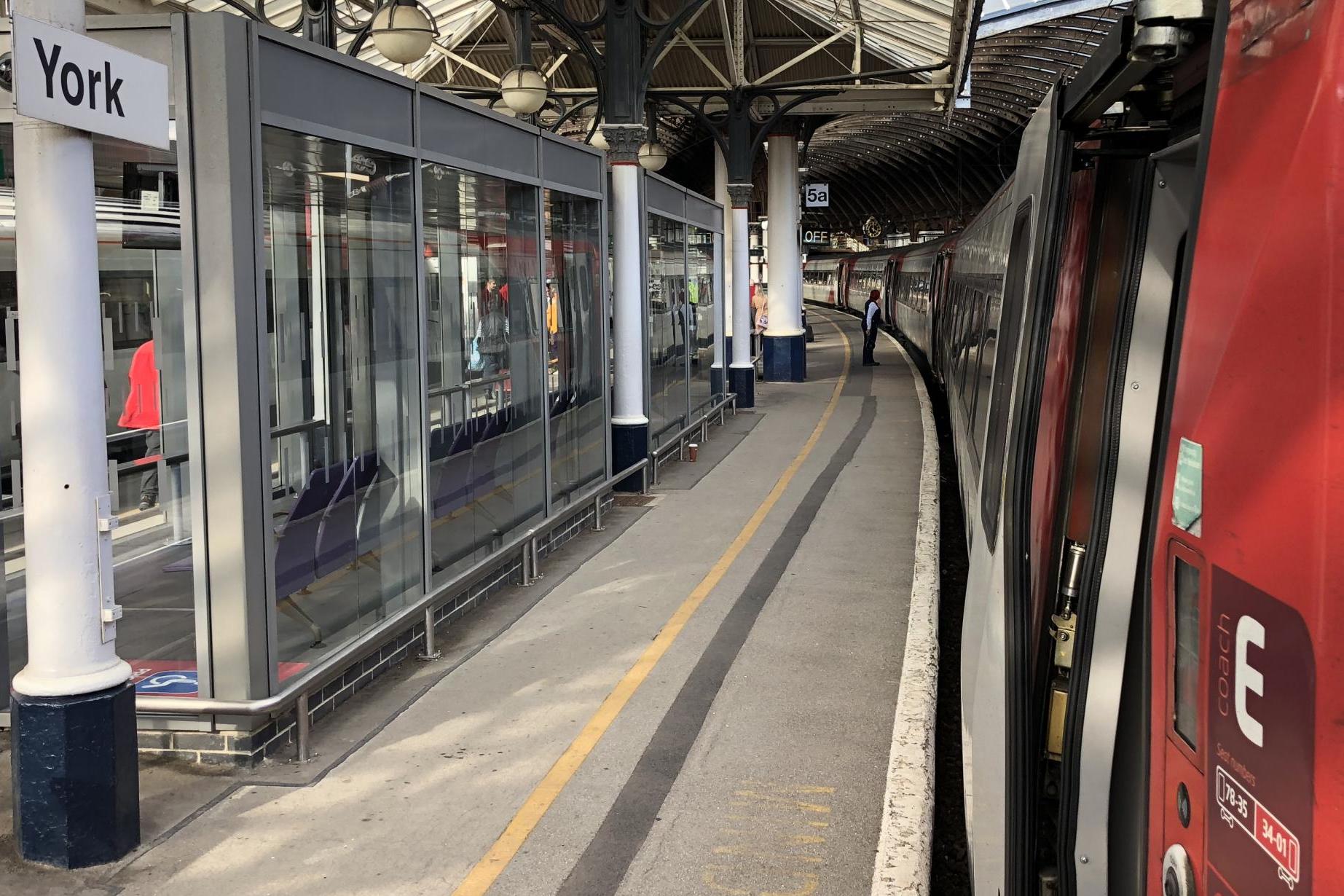Train delays cause British rail passengers to lose four million hours in just one year
Eighty trains a day were ‘significantly delayed’ last year

Your support helps us to tell the story
From reproductive rights to climate change to Big Tech, The Independent is on the ground when the story is developing. Whether it's investigating the financials of Elon Musk's pro-Trump PAC or producing our latest documentary, 'The A Word', which shines a light on the American women fighting for reproductive rights, we know how important it is to parse out the facts from the messaging.
At such a critical moment in US history, we need reporters on the ground. Your donation allows us to keep sending journalists to speak to both sides of the story.
The Independent is trusted by Americans across the entire political spectrum. And unlike many other quality news outlets, we choose not to lock Americans out of our reporting and analysis with paywalls. We believe quality journalism should be available to everyone, paid for by those who can afford it.
Your support makes all the difference.Rail passengers lost around four million hours to delayed trains last year, according to new research.
Eighty trains a day were “significantly delayed” – by at least 29 minutes – in 2018, Which? claimed in its latest findings.
This amounted to 3.9 million hours of delays affecting 8.1 million passenger journeys in total.
A further 660 services a day were cancelled – the highest number of cancellations since comparable records began in 2011.
Transpennine Express and Govia Thameslink Railway (GTR) were the worst offenders when it came to cancellations, with 10 and 7 per cent of all services cancelled respectively last year.
London North Eastern Railway and predecessor Virgin Trains East Coast had the highest rate of significantly delayed trains in 2018 (5 per cent).
Consumer champion Which? based its analysis on data from the Office of Rail and Road, and called the number of delayed trains “staggering”.
Rail services were badly affected last year by the disastrous change in timetables in May, strikes, extreme weather and signalling failures.
Which? said that 36 per cent of passengers never claim the compensation they’re owed and called for making compensation payouts automatic.
“Passengers have faced a torrid time on the trains since the beginning of last year where the rail industry has fundamentally failed on punctuality and reliability,” said Which?’s head of campaigns, Neena Bhati.
“People then face a messy and complex compensation system which puts them off claiming when things go wrong.
“A vital way the Government’s Rail Review and industry can start to restore faith is by introducing automatic compensation for delays and cancellations so that passengers don’t have to fight to get the money they are owed.”
Robert Nisbet, regional director of industry body the Rail Delivery Group, said: “We know that services on some routes weren’t good enough last year and rail companies are working together to improve punctuality and tackle delays across the country.
“Train companies want to make it simple and easy for customers to claim compensation if they’ve experienced a delay.
“Half of the franchises managed by the Department for Transport pay compensation after 15 minutes and some operators have introduced automatic refunds, helping claims to increase by 80% over the last two years.”
Join our commenting forum
Join thought-provoking conversations, follow other Independent readers and see their replies
Comments